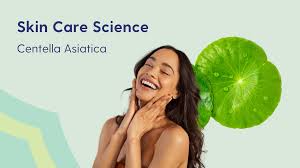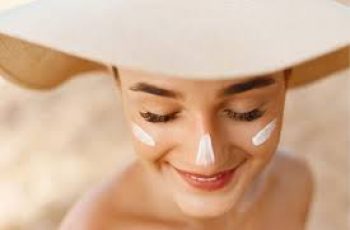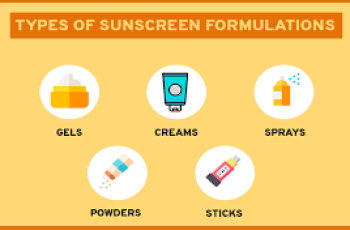
The Science of Centella Asiatica in Skin Care
Have you heard about Centella Asiatica? This unassuming little herb has been making waves in the skincare world, and for good reason. In this blog, we’re diving deep into what makes Centella Asiatica so versatile and beneficial for most skin types. We’ll explore what it is, what it’s made of, the best products, the benefits, possible side effects, and which skin types will love it the most. To find your skin type, take the quiz with the button below!
As a thank you for reading our educational content, we’d like to offer you 20% off your next order with the code STSblog20 at checkout.
Asian/African wetland plant species
Benefits ranging from antioxidants to hydration and anti-inflammation
Is technically safe for all skin types (depending on the product formulation)
Introduction
Centella Asiatica, also known as gotu kola, is an ancient ingredient that is finally getting the recognition it deserves. Originating from wetland areas in Sri Lanka, India, and South Africa, this herb has been used for centuries to treat all sorts of skin concerns. Today, Centella Asiatica extract is prized in skincare for its ability to heal and hydrate. Read below to find out more!
What is centella asiatica?
Centella Asiatica is a small, leafy herb that thrives in tropical climates. Often called gotu kola, it’s a staple in traditional medicine systems like Ayurveda and Traditional Chinese Medicine. But what is the secret? Well, Centella Asiatica extract has been scientifically proven to help with wound healing and skin repair. It’s like nature’s little band-aid.
Active compounds
Triterpenoids : Skin care chemists joke that “everything is terpenes these days,” and for good reason. Madecassoside and asiatic acid are unique lipids in this category that play a large role in the effect of centella asiatica. They boost collagen production and improve skin elasticity, making your skin look and feel firmer. Asiatic and Madecassoside acid have even been shown to aid in wound healing.
Phenols : These antioxidants protect your skin from free radicals, pesky molecules that can cause premature aging and genetic damage. Check out this full blog on polyphenols
Flavonoids : With anti-inflammatory and antioxidant properties, flavonoids help soothe and protect your skin. The most notable flavonoids in this ingredient are Quercetin and Kaempferol. Flavonoids are plant compounds that can have a broad range of effects from antioxidant to anti-inflammatory.
Fatty acids : They help maintain your skin’s moisture barrier, keeping it hydrated and resilient against environmental stressors. This ingredient has linoleic and palmitic acid. The triterpenoids in centella are also lipids.
Best Centella Asiatica Products
Now, let’s talk about how you can get some of this goodness into your skincare routine. Here are some Centella Asiatica products you’ll want to check out:
Centella Asiatica Creams : Perfect for healing and reducing inflammation. Think of them as a hug for sensitive and irritated skin.
Centella Asiatica Serums : These concentrated goodies deliver a potent dose of active ingredients to deeply hydrate and fight signs of aging.
Centella Asiatica Masks : Treat yourself to a spa day at home with these masks that provide intense hydration and soothing benefits.
Centella Asiatica Toners : Balance your skin’s pH and prep it for the rest of your routine while getting a soothing and hydrating boost.
Benefits of Centella asiatica
Why should you make Centella Asiatica a part of your skincare routine? Here are some of the top benefits:
Wound Healing : Centella Asiatica extract speeds up the healing process by boosting collagen production and improving skin regeneration. Great for scars and burns!
Anti-Aging : Its triterpenoids and phenols work together to reduce fine lines and wrinkles by promoting collagen synthesis and offering antioxidant protection.
Soothing and Anti-Inflammatory : Ideal for sensitive and acne-prone skin, it reduces redness and irritation. Without causing any irritation of its own.
Hydration : Keeps your skin’s moisture barrier intact, ensuring your skin stays hydrated and protected.
Improved Skin Elasticity : By stimulating collagen production, it helps your skin stay firm and youthful.
Side-effects
Even the best things have a flip side, but with Centella Asiatica, the side effects are minimal:
Allergic Reactions : Rare, but some people might develop redness, itching, or swelling. Always do a patch test with new products!
Skin Irritation : High concentrations of Centella Asiatica extract can sometimes cause irritation. Start slow and see how your skin reacts.
Cosmetic safety organizations such as the EWG rate Centella as completely safe for use in skin care formulations, and sustainable.
For different skin types
Wondering if Centella Asiatica is right for you? Here’s a breakdown by skin concern:
Sensitive Skin : The soothing and anti-inflammatory properties make it useful for calming sensitive skin.
Acne-Prone Skin : Its wound healing and anti-inflammatory benefits help manage acne and prevent scars, and can lessen the severity of breakouts.
Dry Skin : The hydrating properties ensure your skin stays moisturized and protected with a strong skin barrier.
Aging Skin : Its collagen-boosting and antioxidant properties make it a great choice for reducing fine lines and wrinkles.
Conclusion
Centella Asiatica is like an increasingly precious gem in the world of skincare. With its rich history and proven benefits, it’s no wonder this herb is becoming a staple in modern skincare routines. From promoting wound healing to offering anti-aging benefits and soothing irritation, Centella Asiatica is a versatile ingredient that can help you achieve healthier, more resilient skin. Whether you’re using a Centella Asiatica cream, serum, or mask, adding this powerful herb to your routine can make a world of difference if its in the right formulation.
Ready to find the best Centella Asiatica products for your skin? Take the Baumann Skin Type Quiz to discover the perfect products tailored to your unique skin needs. Your skin will thank you!


